‘Assistive technology’ start-ups helping to transform lives
A host of Israeli companies are at the forefront of an innovative sector improving global healthcare, discovers Candice Krieger
A robotic standing wheelchair, a wearable smart gadget which can read text and software that can be controlled by eye movements are just a few of the ground-breaking Israeli inventions created to help people with disabilities.
Assistive technologies – products, devices, or equipment that is used to maintain, increase, or improve the functional capabilities of individuals with a disability – are much-needed.
The World Health Organisation (WHO) predicts that over 2 billion people will need at least one assistive technology product by 2030. Coherent Market Insights forecasts that the global elderly and disabled assistive devices market will exceed $31 billion by 2027.
Yet access still lags behind demand, with reports stating that only 1 in 10 people have access to the assistive technology they need and funding into the sector is declining. Thankfully Israel is on the case. The ‘Startup Nation’ is home to around 100 assistive technology startups addressing vision, hearing, mobility, services, assisted living, communication and cognitive needs.
They include; AccessibleGO, UPnRIDE and OrCam (more on these later)
Online venture investing platform Our Crowd, which has a strong portfolio of Israeli assistive technologies, recently partnered with the WHO Foundation to launch a $200 million Global Health Equity Fund that will focus on breakthrough technology solutions to improve healthcare around the world. The fund is also targeting disability technologies to improve the lives of people globally and specifically in low- and middle-income countries (LMICs).
Itsik Francis, a principal at OurCrowd, says: “Despite the decline, I believe the assistive technology sector will grow rapidly over the next few years, driven by advancements in AI, machine learning, and natural language processing. These technologies are making it possible to create more sophisticated and personalised assistive devices and software.
“Additionally, the increasing availability of high-speed internet and mobile devices will make it easier for people to access assistive technology. Another important factor that will drive growth in the assistive technology sector is the increasing awareness and acceptance of assistive technology as a mainstream solution for people with disabilities.”
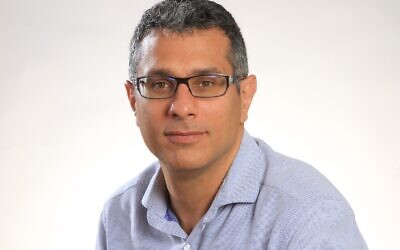
Israel has positioned itself as a world leader in the sector. There are several reasons for this, notes Francis. “Israel has a strong culture of research and development, with many universities and research institutions working on cutting-edge technology in the field.
“Many of the engineers and technicians that work in assistive technology startups in Israel come from a military background. They have experience working with technology in a battlefield environment and have a deep understanding of the needs of people with disabilities.” He adds: “Israel has a high proportion of people with disabilities in its population, creating a high demand for assistive technology products and services. This helps startups to develop and test their products with a large target market. The Israeli government provides financial and regulatory support for assistive technology startups, which helps them to grow and scale.” What’s more, with Israel’s culture of tikkun olam (to repair the world world) the country is home to communities fostering the development of assistive technology solutions with the potential to be scaled into global businesses.
UPnRIDE
Founded: 2013 by Dr Amit Goffer
Location: Yokneam (near Haifa)
About UPnRIDE:
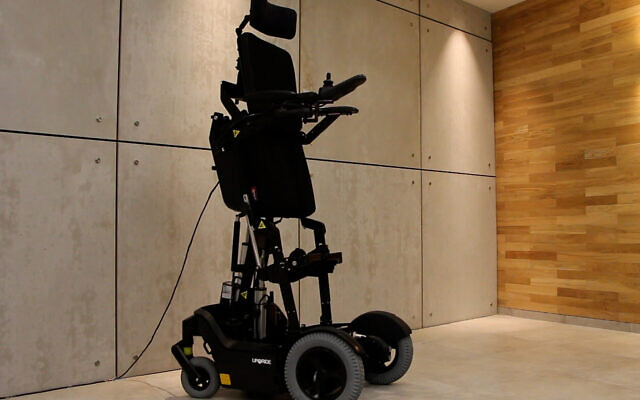 UPnRIDE aims to ‘cure to the sitting disease’. It enables wheelchair users to become mobile while in a standing position. Used in practically any urban environment, even on slopes and uneven surfaces, both indoors and outdoors, UPnRIDE has three differentiating factors: (1) Unique mechanical design that maintains centre of gravity when transferring from sitting to standing – stability of the user, (2) Unique auto-balancing mechanism the keeps the user vertical to earth despite slanted or uneven surface – extra stability for total safety, (3) Many safety algorithms embedded in a proprietary computer to detect hazardous situations and to solve them. The technology of the UPnRIDE (mechanics and auto-balancing algorithms) is protected by global patents.
UPnRIDE aims to ‘cure to the sitting disease’. It enables wheelchair users to become mobile while in a standing position. Used in practically any urban environment, even on slopes and uneven surfaces, both indoors and outdoors, UPnRIDE has three differentiating factors: (1) Unique mechanical design that maintains centre of gravity when transferring from sitting to standing – stability of the user, (2) Unique auto-balancing mechanism the keeps the user vertical to earth despite slanted or uneven surface – extra stability for total safety, (3) Many safety algorithms embedded in a proprietary computer to detect hazardous situations and to solve them. The technology of the UPnRIDE (mechanics and auto-balancing algorithms) is protected by global patents.
Rationale:

Oren Tamari, CEO UPnRIDE Robotics Ltd: “Disabled and elderly people with walking impairments are forced to sit and move around in a wheelchair, a situation that causes physical, physiological, and psychological deterioration (“sitting disease”), leading to poor health, reduced quality of life, low self-esteem, inability to fully integrate in society and very high medical expenses – a burden for the disabled, their families, and society and health insurers.”
Investment to date: $7 million
What makes Israel a leader when it comes to assistive technologies?
Oren Tamari, CEO UPnRIDE Robotics Ltd: “The size of Israel has never allowed the industry to compete with the big global players and therefore we always focus on technology innovation that makes a change. This reality applies to the disability tech sector.”
What are the greatest challenges within the sector?
Oren Tamari, CEO UPnRIDE Robotics Ltd: “Although disability tech has a real impact on individuals and on the society, it’s perceived by investors as an esoteric and not trendy sector. Therefore, it is harder to raise funds to create innovative solution that will change the life of many people. In addition, this industry is very conservative what make it harder to create collaboration between startups and the big players.”
Where do you see this area going over the next few years?
Oren Tamari, CEO UPnRIDE Robotics Ltd: “Technology advancement affects everyone’s life and disabled people expects to see innovative solution for them as well. Market studies show that the robotic and smart wheelchairs sector will grow very rapidly in the next few years (~15%/yr) and it is the same other advanced technologies.”
What are the big trends within this sector?
Oren Tamari, CEO UPnRIDE Robotics Ltd: “Dr Amit Goffer started a revolution in the mobility of disabled people by introducing the ReWalk and since then it is clear to everyone in the field that standing is a must even for wheelchair users. We believe that standing for all wheelchair users will become a gold standard and the UPnRIDE will be leading this trend.”
Where are the big opportunities within this sector?
Oren Tamari, CEO UPnRIDE Robotics Ltd: “Disabled people strive for technology solutions that will improve and change their life and the demand will grow as technology take bigger part of everyone’s life. This goes together with the growing awareness to disability and the need for more accessibility and inclusion.”
“Social and health equity becomes a global goal, led by the UN, and even health insurers take it into consideration when approving solutions to their clients. This will affect the disability tech sector by pushing to new and more advanced solution that will allow the disabled to be as normal as possible.”
accesibleGO

Founded: Launched in 2018. Co-founded by Miriam Eljas, Jeff Schlanger and Galia Kut.
Location: Headquartered in Jerusalem, mainly focused on the US.
About accesibleGO:
A travel platform for those with disabilities, the startup offers travel tips, allows members to book accessible travel, and provides a community where members can share their experiences and reviews. Currently focused on the US market, the company’s vision is global.
Rationale:
Born with a desire to provide a one-stop source to address the travel needs of people with disabilities, accessibleGO is a travel platform that offers bookings with game-changing accessibility data, reviews written by people with disabilities and a dynamic community offering accessibility information and support for like-minded individuals needing the same services.
Miriam Eljas, CEO and co-founder accessibleGO: “I was prompted to start this company with my cofounders because my mother had multiple sclerosis and growing up in Silicon Valley California, I saw what she went through every time we wanted to go anywhere. My mom used a wheelchair and it really shaped how I looked at the world. If we had just been able to find out in advance how accessible things really were prior to arriving, it would have been life changing.”
Investment: Just under $3 million
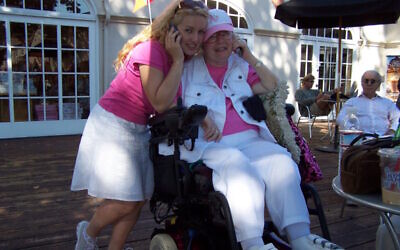
What makes Israel a leader when it comes to disability tech?
Miriam Eljas, CEO and co-founder accessibleGO: “While Israel is known as the startup nation, it is unique because you have startup founders who not only have that drive to launch a company but they also want to improve the world and make a difference. So in Israel you have that dual combination of both drives and it’s extremely powerful.
Greatest challenges within this sector?
Miriam Eljas, CEO and co-founder accessibleGO: “The biggest challenges are mainly mindsets and perceptions of this market by decision makers. “
Where are the big opportunities within this sector?
Miriam Eljas, CEO and co-founder accessibleGO: “The disability market is a blue ocean. I think until recently the status quo was accepted when things weren’t accessible and people just managed with how things were. Traditional VCs previously were not interested in this market because they thought it wasn’t big enough. Now slowly slowly the mentality is changing in all industries. There is an awakening that not only is this is a huge market, but that accessibility needs must be met.”
Where do you see disability tech going over the next few years?
Miriam Eljas, CEO and co-founder accessibleGO: “Every time I look around there are more startups in this space, it’s tremendously exciting because it means that the status quo is no longer accepted and change for the better is on the horizon.
What are the big trends within this sector?
Miriam Eljas, CEO and co-founder accessibleGO: “Within the disability market space, I’ve seen a real rise in the assistive tech space specifically. This is the effort to improve the day to day lives of people with disabilities and it’s truly amazing to watch it burgeoning.”
OrCam
Founded: 2010 by Prof. Amnon Shashua and Ziv Aviram
Location: Headquartered in Jerusalem
About:
OrCam uses cutting-edge AI technology to assist people who are blind or visually impaired, have reading difficulties, or learning challenges. OrCam has created globally award-winning devices: OrCam MyEye and OrCam Read, for those with low vision; and OrCam Learn for people with reading and learning differences, including dyslexia. The newly-added ‘Translation’ and ‘Dictionary’ features supports learners throughout their studies. With the press of a button, OrCam Learn translates any English text into 15 different languages. Moon Hall School and Oldham College are early adopters of the OrCam Learn in the UK. OrCam MyEye is a lightweight, wearable device, which instantly reads text from any surface out loud – from printed pages and digital screens – and recognises faces, identifies products, and more. OrCam Read is a handheld device designed for people who find reading challenging, including those with mild to moderate low vision or reading fatigue. It instantly reads any printed or digital text. Aimed at students, OrCam Learn reads out loud a full page, paragraph, or single word – of the student’s choosing – including from a book, digital screen, or classroom handout, and provides insightful data analytics & reporting.
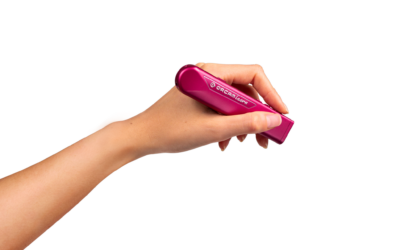
Rationale:
OrCam Technologies strives to empower humanity by creating life-changing “assistive companions”, powered by artificial intelligence (AI), for people who are blind or visually impaired, have reading difficulties, or learning challenges. The aim is to give users increased confidence, independence and enhance their quality of life.
What makes Israel a leader when it comes to disability tech?
Rafi Fischer Director of Public & Media Relations OrCam Technologies
“Disability tech frequently requires integration of multiple domains – including hardware, software, natural language understanding/processing (NLU/NLP), algorithmic vision, AI, and more – and very specific problem solving. The strong pool of talent nurtured by the IDF’s elite technology units, Israel’s strong academic environment, and the Israeli ‘can do’, nimble, and entrepreneurial spirit has all contributed to propel the country to leadership in this domain.”
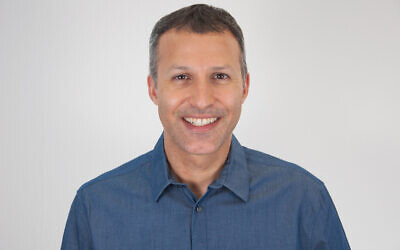
Greatest challenges within this sector?
Rafi Fischer Director of Public & Media Relations OrCam Technologies:
“A key challenge is developing products that can seamlessly integrate into the daily lives of people dealing disability. Specifically, for us, it required us to pack various technologies into an easy-to-use, small form factor device. Another key challenge has been making the information and user experience of the device accessible online to a low vision audience.”
What are the big trends within this sector?
Rafi Fischer Director of Public & Media Relations OrCam Technologies:
“One key trend is that we see the definition of disability tech morphing and expanding to cover human differences more broadly, and converging with other domains, such as education.
“In OrCam, we leveraged our key technological assets to develop OrCam Learn, an integrative solution that addresses the needs of students with reading and learning differences, and their parents, teachers, and schools. This solution reads text from any surface – print or digital – and also allows students to practice their reading out loud and be assessed on their reading fluency and comprehension. Teachers and schools receive frequent assessments of each student, enabling them to more effectively navigate the student’s academic journey.
“Learning differences are very common – 1 in 5 students has them, and for 85 per cent of this population, the challenge is reading-related. Our vision for OrCam Learn is to develop it into an increasingly sophisticated “learning companion” for students.
“Another key trend is the growing role of Artificial Intelligence. As AI becomes more powerful, it further opens the field of disability-related problems that can be addressed with technology.”

Thank you for helping to make Jewish News the leading source of news and opinion for the UK Jewish community. Today we're asking for your invaluable help to continue putting our community first in everything we do.
For as little as £5 a month you can help sustain the vital work we do in celebrating and standing up for Jewish life in Britain.
Jewish News holds our community together and keeps us connected. Like a synagogue, it’s where people turn to feel part of something bigger. It also proudly shows the rest of Britain the vibrancy and rich culture of modern Jewish life.
You can make a quick and easy one-off or monthly contribution of £5, £10, £20 or any other sum you’re comfortable with.
100% of your donation will help us continue celebrating our community, in all its dynamic diversity...
Engaging
Being a community platform means so much more than producing a newspaper and website. One of our proudest roles is media partnering with our invaluable charities to amplify the outstanding work they do to help us all.
Celebrating
There’s no shortage of oys in the world but Jewish News takes every opportunity to celebrate the joys too, through projects like Night of Heroes, 40 Under 40 and other compelling countdowns that make the community kvell with pride.
Pioneering
In the first collaboration between media outlets from different faiths, Jewish News worked with British Muslim TV and Church Times to produce a list of young activists leading the way on interfaith understanding.
Campaigning
Royal Mail issued a stamp honouring Holocaust hero Sir Nicholas Winton after a Jewish News campaign attracted more than 100,000 backers. Jewish Newsalso produces special editions of the paper highlighting pressing issues including mental health and Holocaust remembrance.
Easy access
In an age when news is readily accessible, Jewish News provides high-quality content free online and offline, removing any financial barriers to connecting people.
Voice of our community to wider society
The Jewish News team regularly appears on TV, radio and on the pages of the national press to comment on stories about the Jewish community. Easy access to the paper on the streets of London also means Jewish News provides an invaluable window into the community for the country at large.
We hope you agree all this is worth preserving.






















